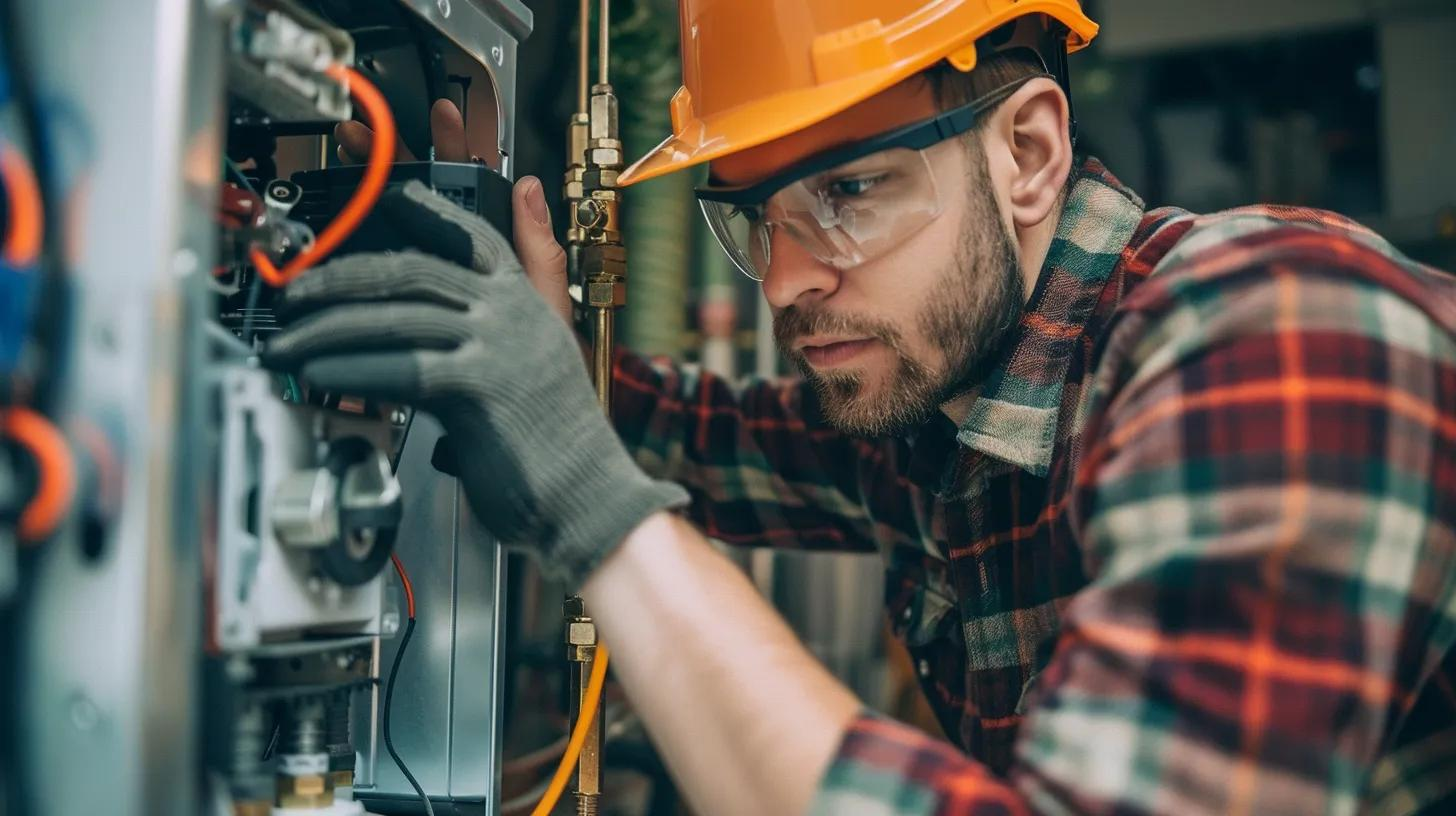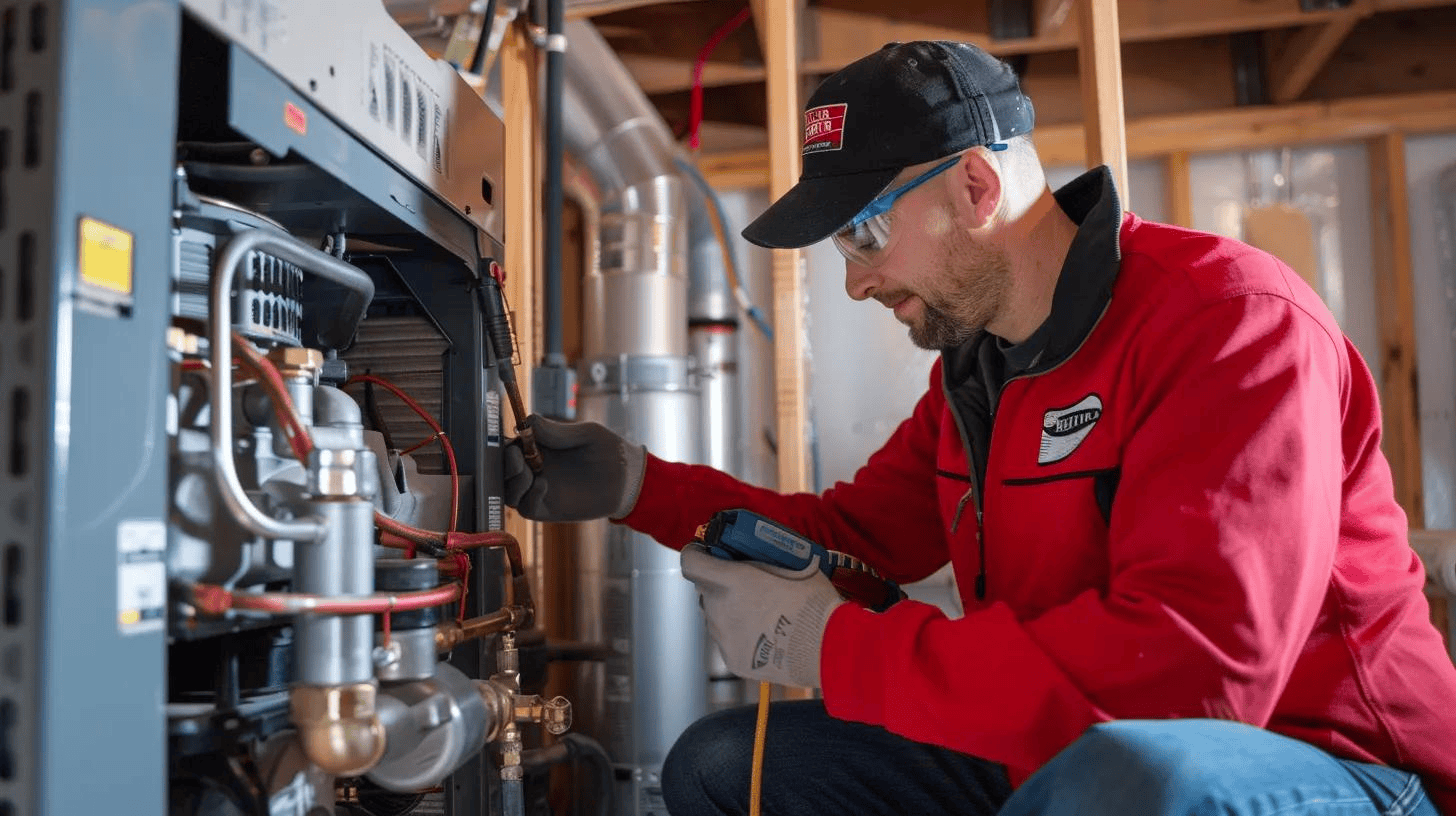Furnace Repair in Aspen Hill, MD
Expert Furnace Repair in Aspen Hill, MD
When your furnace falters in Aspen Hill, MD, prompt repair is essential. Our skilled technicians provide reliable service, diagnosing common issues like insufficient heat, unusual noises, frequent cycling, or high utility bills. Before calling, check your thermostat, air filter, power, and vents. Our thorough diagnostic process ensures accurate solutions for all furnace types, from igniter repairs to blower motor replacements. We also help you decide whether repairing or replacing your furnace is the best long-term heating solution for your home.

Expert Furnace Repair in Aspen Hill, MD
When your furnace falters during a cold Maryland winter, the comfort and safety of your Aspen Hill home are immediately compromised. A sudden loss of heat is more than an inconvenience; it’s an urgent problem that requires a swift, professional solution. Our dedicated team of experienced technicians is committed to providing prompt and reliable furnace repair services throughout Aspen Hill, ensuring your heating system is restored to optimal performance with precision and care. We understand the specific heating needs of local homes and are equipped to diagnose and resolve any furnace issue, no matter the make or model.
Common Signs Your Furnace Needs Professional Attention
Furnaces often display warning signs before they fail completely. Recognizing these indicators early can prevent a small issue from becoming a major, costly breakdown. If you notice any of the following symptoms in your Aspen Hill home, it is time to consider professional service.
- Insufficient or No Heat: The most obvious sign is a furnace that doesn't produce warm air or fails to circulate it effectively throughout your home, leading to cold spots or a chilly indoor environment.
- Unusual Noises: Furnaces should operate with minimal noise. Loud sounds like banging, popping, rattling, or high-pitched squealing can indicate serious mechanical problems, such as a loose component, an issue with the blower motor, or an ignition system malfunction.
- Frequent Cycling: If your furnace turns on and off more frequently than usual, a condition known as short cycling, it may be caused by a clogged filter, improper airflow, or a malfunctioning thermostat. This not only affects comfort but also drives up energy consumption.
- Unexpectedly High Utility Bills: A sudden spike in your heating bills without a corresponding change in usage often points to an inefficient furnace. The system is working harder than it should to heat your home, signaling an underlying problem.
- Yellow Pilot Light: For gas furnaces, the pilot light should always be a steady blue. A pilot light that is yellow, flickering, or weak is a critical warning sign of a ventilation problem, which could lead to dangerous carbon monoxide leaks.
- The Blower is Always Running: If the furnace blower fan runs continuously, even when the heating cycle is off, it may indicate an issue with the limit switch or the thermostat settings.
What to Check Before You Schedule a Repair
Before a technician arrives, there are a few simple troubleshooting steps you can safely perform. These checks can sometimes resolve minor issues or help provide our technicians with more accurate information.
- Verify Thermostat Settings: Ensure your thermostat is set to "HEAT" and the temperature is set higher than the current room temperature. Check the batteries and replace them if necessary.
- Inspect the Air Filter: A severely clogged air filter is a common culprit for many furnace problems, as it restricts airflow and can cause the system to overheat and shut down. Check your filter and replace it if it appears dirty.
- Check the Power Supply: Confirm that the furnace's power switch, which often looks like a standard light switch located on or near the unit, is in the "ON" position. Also, check your home's circuit breaker panel to ensure the breaker for the furnace has not tripped.
- Ensure Vents Are Clear: Walk through your home and make sure all supply and return air vents are open and unobstructed by furniture, rugs, or other items.
If these steps do not resolve the issue, it is crucial to seek professional assistance to avoid causing further damage to your system.
Our Comprehensive Furnace Diagnostic and Repair Process
Our approach to furnace repair is thorough and transparent. When our technician arrives at your Aspen Hill home, they follow a meticulous process to ensure an accurate diagnosis and an effective, long-lasting repair. We begin by listening to your observations about the furnace's behavior before conducting a comprehensive inspection. Using advanced diagnostic tools, we systematically examine every critical component, from the ignitor and flame sensor to the blower motor and control board.
Once we have pinpointed the exact cause of the problem, we will explain the findings to you in clear, easy-to-understand terms. We present all available repair options and provide a detailed, upfront explanation of the work required so you can make an informed decision with complete confidence. Only after receiving your approval do we proceed with the repair, using high-quality parts and industry-leading techniques to restore your system's functionality.
A Full Spectrum of Furnace Repair Services
Our technicians are skilled in handling a wide range of furnace repairs. We have the expertise to service all major brands and models, whether you have a gas, electric, or oil furnace. Our services include:
- Igniter and Pilot Light Repair
- Flame Sensor Cleaning and Replacement
- Thermostat Repair and Calibration
- Blower Motor and Capacitor Replacement
- Control Board and Circuit Board Repair
- Heat Exchanger Inspection and Repair
- Gas Valve and Burner Maintenance
- Limit Switch Replacement
- Airflow and Ductwork Corrections
When to Repair vs. Replace Your Furnace
A common question for homeowners is whether to invest in a repair or consider a full system replacement. Several factors can help guide this decision. If your furnace is relatively new and the cost of the repair is manageable, repairing it is often the most economical choice. However, if your furnace is over 15 years old, has experienced frequent breakdowns, or requires a repair that costs nearly half the price of a new unit, replacement may be the more sensible long-term investment. A new, high-efficiency furnace can provide superior comfort, reliability, and significant energy savings that offset the initial cost over time. Our technicians can provide an honest assessment to help you weigh the pros and cons for your specific situation.






